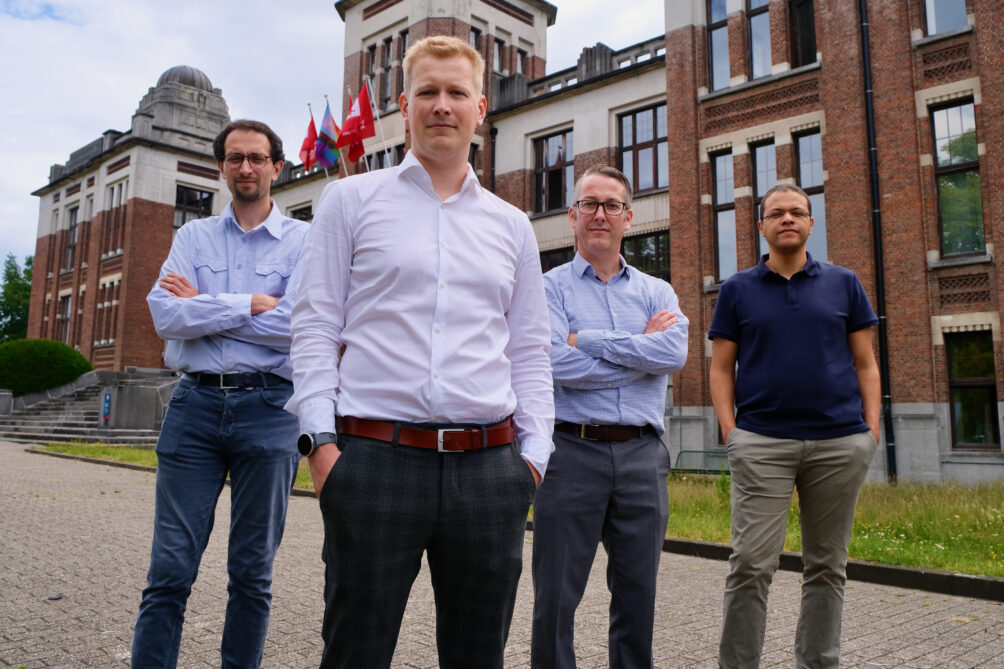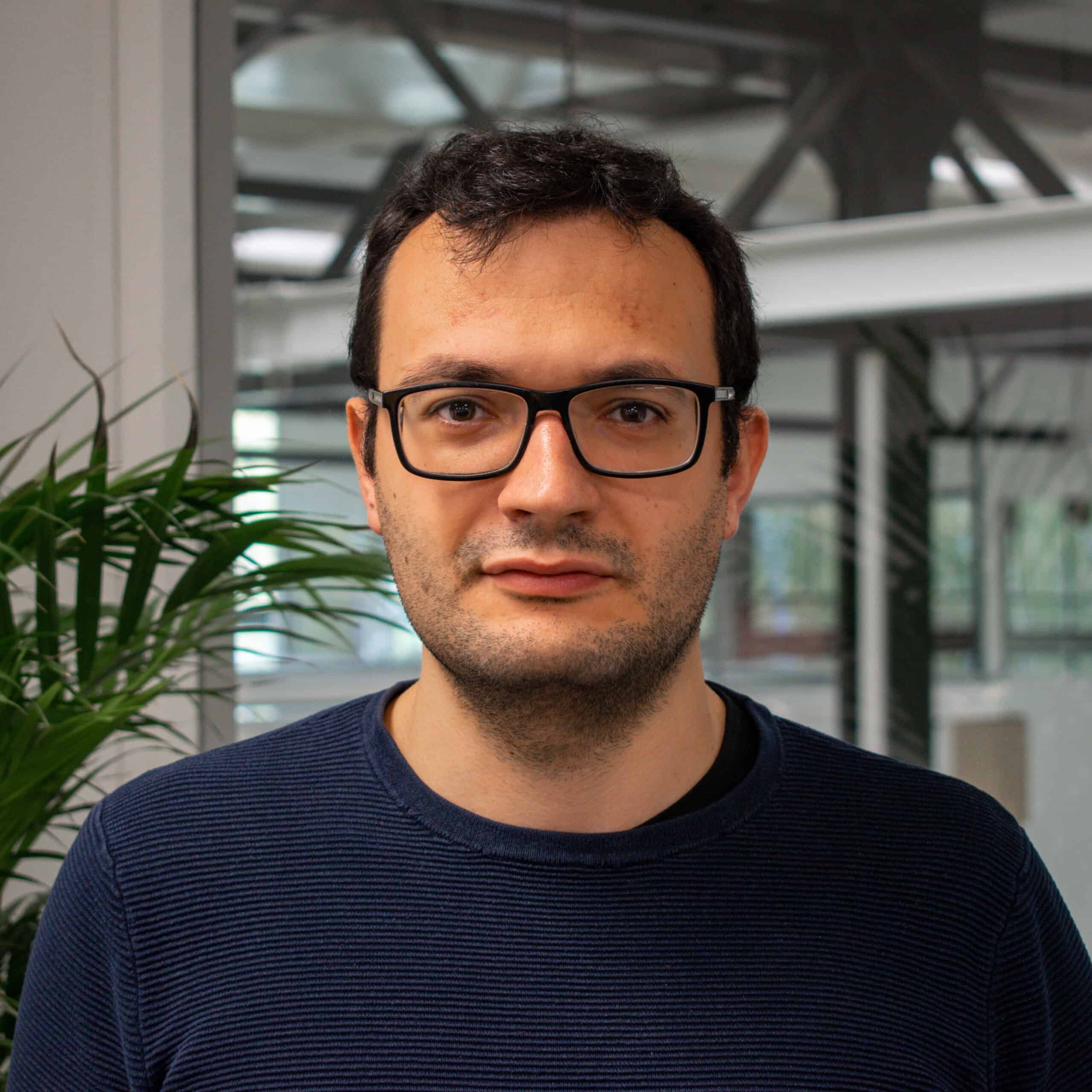
About ImmuneWatch
- Founders: Sander Wuyts, Pieter Meysman, Kris Laukens, Benson Ogunjimi Tom Bosschaerts.
- Founded in: 2021
- Employees: 6
- Money raised: -
- Ultimate goal: Monitoring and predicting immune responses.
‘Is the course of treatment I’m following working? How is that vaccine going to affect my immune system?’ ImmuneWatch has an answer to these and many more questions about what they do. The spin-off from the University of Antwerp and the Antwerp University Hospital has developed technology that predicts and monitors the immune response of patients. Innovation Origins had a chat with its CEO Sander Wuyts, who introduces the company for this instalment in the start-up of the day series.
What is ImmuneWatch exactly?
“ImmuneWatch is an AI research company that specializes in monitoring and predicting immune responses. Our core business is looking at how people respond to vaccines, cancer therapies, and autoimmune diseases. Besides monitoring immune responses, we also use artificial intelligence to predict how these reactions will work out.”
How can you use AI to monitor cells?
“What we do is possible thanks to the developments in DNA sequencing technologies. Nowadays, with the help of a blood sample, it’s possible to use DNA sequencing to focus on immune system cells. This enables us to glean information on how the immune response works. Data can then be fed to machine learning algorithms. Through them, we are able to create models to predict how a particular person will react to a vaccine. On the whole, thanks to the rise in the availability of biological data, we are now able to use machine learning models in these realms too.”
What cells do you focus on?
“We focus on T cells. As part of the immune system, they recognize and eliminate viruses, bacteria, and tumor cells. Research on COVID-19 vaccines showed that the role of T cells is far more important than what was ever assumed previously. Stimulating them has become a goal in the development of new vaccines. We believe that our technology allows a deep dive into their behavior before and after administration of a vaccine. Better vaccines can be developed as a a result.

This also applies to other domains – such as in the case of autoimmune diseases, which are caused by T cells themselves attacking the body. What’s more, a better understanding of how these cells behave can help in devising and monitoring cancer therapies. In fact, more and more healthcare approaches are using T cells to kill tumors.”
What gap did you spot in vaccine design?
“Vaccine design used to focus on antibody response rather than on the T cell response, which is more complex and slower. Yet, it is a more advanced one. Antibody response turned out not to be enough in several cases, as vaccines that were designed on the basis of that information might see their effect drop off after a while. Interest in studying T cells is rising but most tests are currently being performed on lab-grown cells. While this might not be the best type of proxy to get a real immune response.
We thought that deeper ex-vivo insights were missing. In other words, there wasn’t a method that could identify this type of response by simply extracting blood – at least not without analyzing it thoroughly in a lab first. As experts in the field, we believed that it was worth pursuing such an idea, one that could answer a whole raft of more questions. ‘How many and what T cells does a single individual have? Is the therapy working?’”

What other uses can your technology have?
“What we envision is having a kit to collect a small DNA blood sample at home. Then, the diagnostic kit can be given to their general practitioner, so they can get an update on their immune system status. It could be done every year – the immune system evolves continuously – and it could probably help with early cancer detection. Afterwards, the GP could prescribe further checkups ahead of time. But there’s plenty more possible.”
Could you be more specific?
“From collected samples, we can gain insights into the patient’s past. T cells keep track of previous infections and vaccinations as they form what’s known as immunological memory. Specialists could get an accurate profile of the patient this way. Furthermore, as T cells also carry information about ongoing infections, this could help detect which virus someone is being affected by in those cases when it’s not clear. All this data can also be used to predict the future. For example, they can tell us if are we have build up protection against a certain pathogen. In a nutshell, it would be a diagnostic kit that provides insight into the immunological past, the present, and the future of a patient.”

What’s next for you?
“As a research company, we’re still looking into the best ways to make the most out of our technology. Specifically, we are looking at different kinds of vaccination areas so that we can build a strong proof of concept for vaccine components. What’s more, we’re taking the first steps in developing the diagnostic tool I mentioned earlier.”

